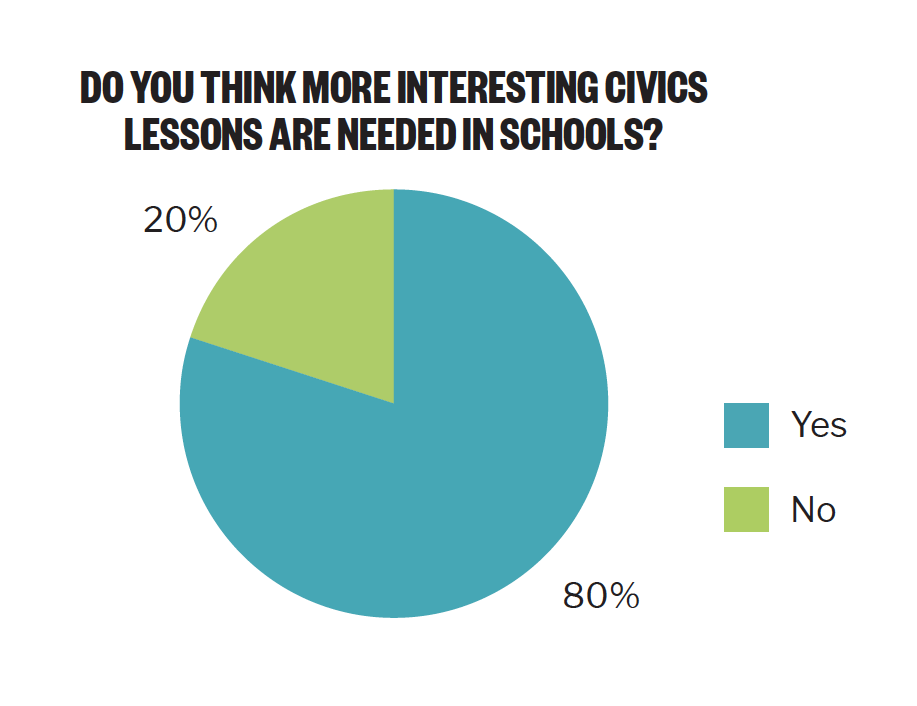AISD Parents’ Perspectives on Civic Education and Social Issues
Most parents in AISD feel equipped to discuss civic and social issues with their children, and many also believe that these issues should be discussed in a classroom setting. According to the latest report from the Annette Strauss Institute for Civic Life, “The most-cited topics that parents thought should be covered in school were reflective of both the top issues parents already discussed with their children and those that they were more hesitant to address: difficult historical topics (77%), the environment (76%), recycling (71%), ability/disability (69%) and race or racism (69%).”
Between October 29, 2021 and January 4, 2022, the Annette Strauss Institute for Civic Life surveyed parents and guardians of Austin ISD students to learn about their views on civic engagement and education in schools. With a total of 306 completed surveys, the investigation highlighted whether parents felt comfortable or confident discussing twenty different social issues with their children as well as whether or not parents felt that these topics should be discussed in their children’s schools. Parents were surveyed in all areas of Austin, however, more parents from North, South, and West Austin responded.
The survey also evaluated whether parents’ opinions varied based on the age of their children, their educational background, and their civic dispositions. Parents with kids in high school were more likely to have discussed topics like voting, social justice, LGBTQ issues, social movements, and violent conflict than those with younger children. Parents with kids in elementary or middle school were more uncertain about their ability to discuss such topics with their children. Parents with postgraduate degrees were more likely to indicate they wanted social issues to be discussed in their children’s schools compared to parents who had a bachelor’s degree or less. Parents with stronger civic dispositions were more likely to talk about social issues with their children and more likely to want schools to go over more social issues in class.

When asked about the key topics that should be covered in civics lessons, parents ranked voting as the most important. Parents expanded on what they believed the goals of civics lessons should be. Respecting differences and understanding social inequalities were important themes among parents. One parent shared, “I think it's important to shine light on the differences in the community/people. This will help us learn all the differences and respect them (for example, religion). I think it's also important for children to know about how difficult life can be for certain people just because of their differences. I think this will help create adults who find their voices and become active citizens that work to improve the lives of all.”Another parent shared: “I do not believe schools should be the authority on what is right or wrong in many issues, but rather how to have discussions on those issues. If government (schools) tries to only present one side, that is not the best education for our students. Students need to be challenged to learn, question, and listen to others. We should not be encouraged that one side is evil and one side is good.”
To read the full report, including the methodology, click here.

